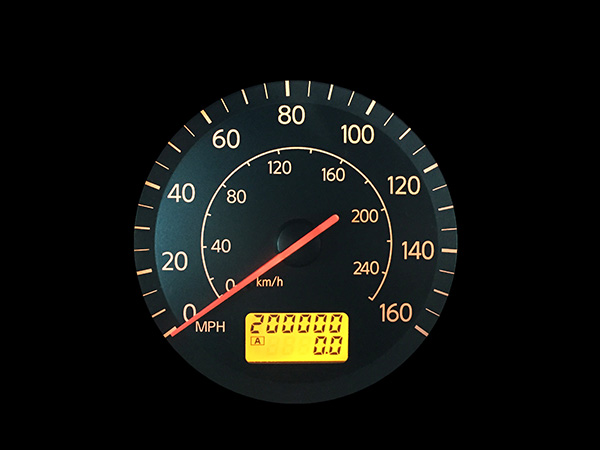
Your speedometer isn’t just a dashboard feature; it’s an essential tool for safe driving. It keeps you informed about your speed, helping you comply with traffic laws and stay in control on the road. But what happens when this instrument stops working or starts giving inaccurate readings? While it might not seem like a big deal at first, a faulty speedometer can lead to dangerous situations and, in some cases, even accidents. We'll explain how this seemingly small issue can have serious consequences.
How Does a Speedometer Work
Before understanding the risks, it’s helpful to know how a speedometer operates. In most vehicles, a speed sensor monitors the rotation of the transmission or wheel and sends this data to the car’s computer. This information is then displayed as your speed on the dashboard.
When the speed sensor or related components malfunction, the speedometer can stop working entirely or display incorrect readings. Faulty wiring, worn-out gears, or issues with the gauge itself can also cause problems.
The Safety Risks of a Malfunctioning Speedometer
Accurate speed monitoring is essential for safe driving. Without a functioning speedometer, you might be unknowingly driving too fast or too slow—both of which can lead to accidents.
- Speeding Risks: When you don’t know your exact speed, you’re more likely to exceed speed limits. In high-speed zones, this increases the chance of losing control or being unable to stop in time to avoid a collision.
- Driving Too Slowly: On highways or in fast-moving traffic, driving too slowly can be just as dangerous as speeding. It can disrupt the flow of traffic and increase the likelihood of rear-end collisions.
- Inability to Adapt to Traffic Conditions: Modern traffic patterns often require quick adjustments to speed. A faulty speedometer makes it harder to match the pace of other vehicles or slow down appropriately for curves, intersections, or stoplights.
Legal and Financial Implications
If your speedometer isn’t working, you might also find yourself in trouble with the law. Traffic laws in many states require vehicles to have functioning speedometers, and getting pulled over for speeding due to inaccurate readings can lead to hefty fines.
In addition, if an accident occurs and it’s discovered that your speedometer was faulty, you could be held liable for damages. Insurance companies may use this as grounds to deny coverage, leaving you responsible for costly repairs or medical bills.
In Newark, NJ, where busy streets and highways demand constant attention to traffic laws, a malfunctioning speedometer can become a major liability. Regular maintenance and timely repairs are critical to keeping your vehicle safe and street-legal.
How to Recognize Speedometer Problems
Not all speedometer issues are obvious at first. Here are some signs that your speedometer might need attention:
- Inconsistent Readings: If the needle bounces or gives erratic speeds, it’s a clear sign something is wrong.
- Complete Failure: A speedometer that doesn’t move at all is a major red flag.
- Unusual Transmission Behavior: Since many vehicles use speed data to regulate gear shifts, a faulty speedometer can cause erratic shifting or poor performance.
- Warning Lights:A check engine or other warning light might indicate an issue with the speed sensor or related systems.
Why Professional Repairs Matter
Speedometer issues are more than a minor inconvenience; they’re a safety concern that requires immediate attention. While some drivers might attempt DIY fixes, modern vehicles rely on advanced electronics and sensors that are best handled by a professional.
A trained technician will accurately diagnose the problem, whether it’s a damaged sensor, worn wiring, or a faulty gauge. Timely repairs can restore your speedometer’s functionality, prevent further damage, and ensure your vehicle remains safe to drive.
Don’t let a faulty speedometer put your safety at risk. Contact Autobahn Auto Repair in Newark, NJ, for expert diagnostics and repairs. Call today to schedule your appointment!